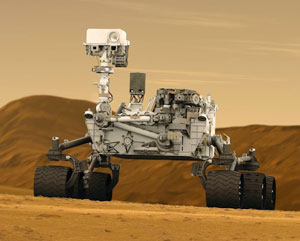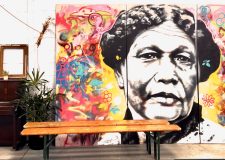Science: Unlocking Potential
Dr Caroline Oprandi keeping you up to date with science & technology at PACA
We have just entered our coding programme for the competition of Young Engineer of the Year Award. Dexter, one of the students, has picked up a robot that I built at the University of York National STEM Centre. The fact that I was able to build a robot in the first place still amazes me but this is largely due to the fact that we now have the technology that makes it simpler to construct robots and also coding programmes that are very easy to follow.
It doesn’t surprise me that the latest report from the Bank of America Merrill Lynch looking at the likely effects of a robot revolution; has forecast huge numbers of jobs being wiped out: up to 35% of all workers in the UK and 47% of those in the US, including white-collar jobs, seeing their livelihoods taken away by machines.
This can only be good news, if with the coming robot revolution, society benefits as a whole. So for those that lose their jobs to robots, it means that they have more leisure time and their standard of living is enhanced. The new Director of Engineering at Google, Ray Kurzwel, in an interview for the Observer said, “I think our best hope going forward is figuring out how to live in an economy of radical abundance, where machines do all the work, and we basically play.”
Kurzwel has a job description at Google that consists of one brief line: help bring natural language understanding to Google. Kurzwel predicts that by 2045 computers will be a billion times more powerful than all of the human brains on Earth. And it’s the Google-scale resources that are beyond anything the world has seen before. Such as the huge data sets that result from 1 billion people using Google every single day. And the Google knowledge graph, which consists of 800m concepts and the billions of relationships between them.
This is already a neural network, a massive, distributed global “brain”. Can it learn? Can it think? It’s what some of the smartest people on the planet are working on next. Kurzwel realised that one of the key things about inventing successful new products was inventing them at the right moment, and “so, as an engineer, I collected a lot of data” (sourced from the Observer – Carole Cadwalladr).
However, the danger lies in where individuals who lose their jobs do not reap the benefits and the benefits of the robotic revolution are only enjoyed by a few i.e. those who own Artificial Intelligence (AI). Calum Chace, author of Surviving AI, says, “There will be people who own the AI, and therefore own everything else, which means homo sapiens will be split into a handful of ‘gods’, and then the rest of us.”
At the moment we have to hope that the ‘gods’ of AI will treat the rest of us with compassion and see the benefit in enhancing living standards for all on a global scale.
Portslade Aldridge Community Academy (PACA) is a college offering sixth form, 11-16 years, youth centre, adult learning, community education, sports centre and pre-school. Find out more at www.paca.uk.com




















